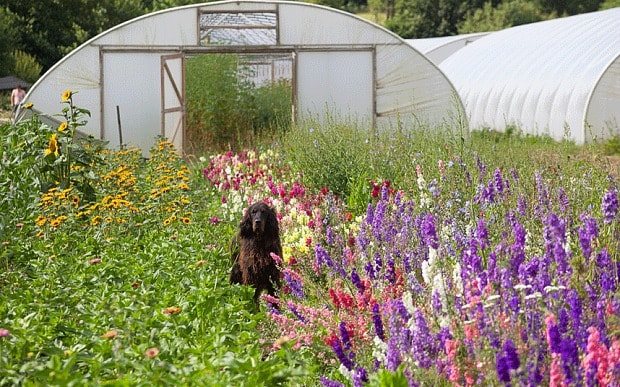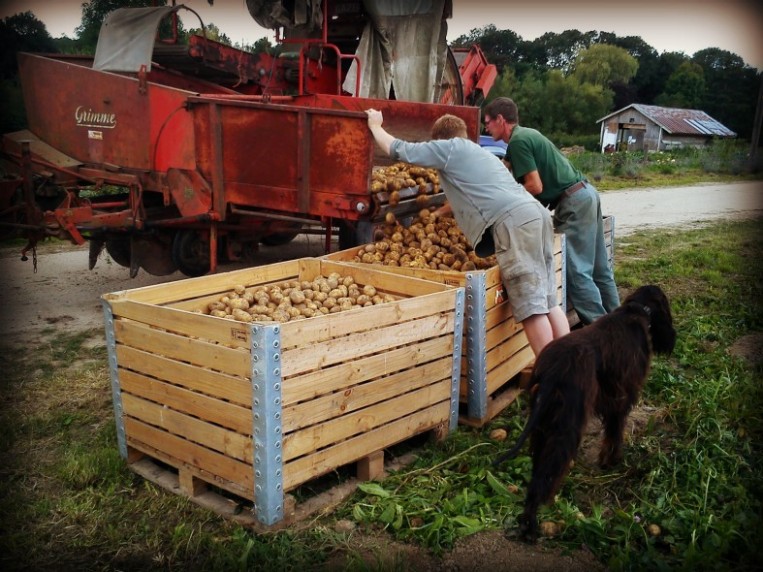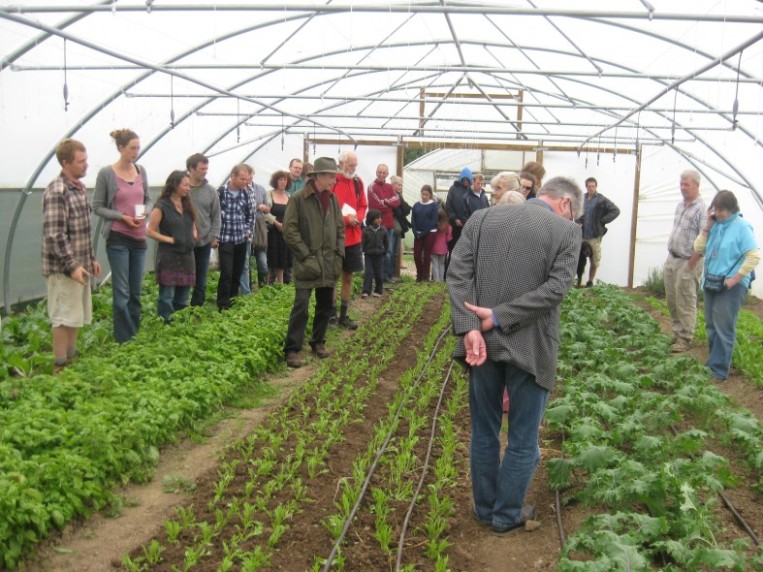Our Growers: Tablehurst Farm
Chris has been volunteering and working with Tablehurst farm for twenty years. We’ve spoken to him about how the farm has developed since he first fell in love with it back in 1997. If you’re ever near Forest Row in Sussex, be sure to stop by and visit their farm shop. (I KNOW that I shouldn’t tell you about it, but the farm is just so beautiful!)

When did you get involved with Tablehurst Farm? What was your role then and how has that role developed?
In 1997 (approx.) I attended an open day at Tablehurst with my wife and two toddlers, and fell in love with the farm. What struck me was that this big event felt more like a gift to the community than an attempt to extract money (despite the fact that there was a cost to enter). It made it stand apart from other rural fairs and the like, and after that, I just stayed. I have been a member of the Co-op committee which owns the farm; chair of the Co-op committee for four years; a volunteer member of the Tablehurst management team for a couple of years; one of the organisers of a later open day, frequent participant in volunteer work days, walks, talks and a study group about biodynamic farming; newsletter editor for about ten years; and a customer throughout! I became a volunteer non-executive director of Tablehurst at the beginning of 2016, and then took a job at the farm in February of this year.
How would you describe Biodynamic in your own words, being around it all the time?
Tablehurst Farm strives to meet biodynamic standards in all of our farming and gardening. A biodynamic farm is viewed as a single, self-supporting organism. We seek to create and nurture a diverse farm ecosystem, to build long term soil fertility, to use our own manure and compost, to grow all our own animal feeds, and to minimise external inputs to the farm. Special preparations made from fermented manure, minerals and herbs are used to help restore and harmonize the vital life forces of the farm. In the long term, we hope to work towards self-sufficiency in energy supply as well.
Biodynamic farms recognise that a sustainable farm organism cannot be created and maintained without a strong focus on the social aspect as well as the agriculture. It is for this reason that biodynamic farms have been at the forefront of the community supported agriculture movement, which is of such central importance to both our farms. We aim to create healthy communities of workers on the farms, and to engage with the wider community of visitors, supporters, shareholders and customers who make a connection with the farms. For the same reason, we work hard to explain what we are doing, and why we are doing it, to as many people as possible.

Do you see any evidence that customers and visitors’ attitudes have changed towards organic, locally grown food?
Up to a point. Over the last five to ten years, we have seen huge growth in demand, but that has now levelled off, and in a way, we never meet anyone who isn’t committed to organic food, because they don’t come to Tablehurst! It is therefore quite hard for us to assess this. My impression is that interest in organics has wandered up and down a bit – most people don’t actually know what it is anyway – but that interest in provenance and local supply is really strengthening.
I know that community is really important to you, what is the community at Tablehurst like?
We’ve been a community farm for over 20 years, so yes, quite important! The first community we attend to is the team who live and/orwork on the farm. We have several farming families living on site (and three now raising young children here) and we offer a free communal lunch to all staff every day to bring everyone together. We have three care home residents who live on site and work on the farm, in the garden and in our kitchens during the day. They are an integral part of Tablehurst. Connection with the wider community is a constant focus for us, and in fact it’s something I’m particularly focused on building in my new role. We had our Harvest Celebration last weekend which was focused on community engagement, and particularly in creating opportunities for people to connect with the farm by volunteering their time and/or by becoming shareholders in our Co-op. We also want to substantially extend our engagement with children and schools.

We’re hearing a lot about how people should buy local to support their local farmers and farmland. Your local community must be really important to you – could you survive without their custom, and is it an equal relationship in that you both help each other?
We have customers who travel from London and the south coast to shop at Tablehurst, but our customer base is very predominantly local, and we couldn’t possibly survive without our local customers. We are constantly working to build community through mutually beneficial events and activities such as our lambing days, open days, farm walks and barn dances. We do have to charge for some events, but even then they aren’t particularly profit-focused, and quite a number of events at Tablehurst are free. We also offer open access to the farm at all times and encourage people to wander around and see what they can learn.
We recently set aside some land for community allotments, which are now all being actively cultivated. We have a kids club at Tablehurst where (mostly home-schooled) local children spend a regular day on the farm doing supervised practical work. We have also supported other local farmers and growers and have been instrumental in the birth of two other biodynamic farms in our local area.
How have the values of organic and animal welfare on Tablehurst farm developed over that time, and have their been any dramatic changes over the way your produce is grown over that time?
Our farming is constantly changing and developing, but the biodynamic ideal has always been the central goal, so animal welfare was, and remains, a top priority. A particular challenge of biodynamic farming is the aim that the farm should be self-sustaining, with as few external inputs as possible. This means that we should, ideally, be growing all our own animal feed. We don’t manage this yet, but are right now involved in some important experiments to dramatically alter the balance. An even more important theme, because it is fundamental to all farming, is caring for the soil so as to create a living, balanced, healthy soil with high humus content. This is a very complex subject, but one that David, our farm director is (rightly) obsessed with. Soil humus sequesters carbon from the atmosphere, so increasing humus levels not only creates a healthy, fertile growing medium, it also combats climate change. Vegetable growing at Tablehurst has come and gone, then come again over the years, but now I think it is definitely with us to stay, and we hope to continue growing a wide range of vegetable for the foreseeable future.

You can find out more about Tablehurst on their video below, or by visiting their website.
This week our produce from them includes beautiful Oakleaf lettuces, kale, Red Kuri squash (perfect for soup), spaghetti squash and a variety of gorgeous red peppers.
